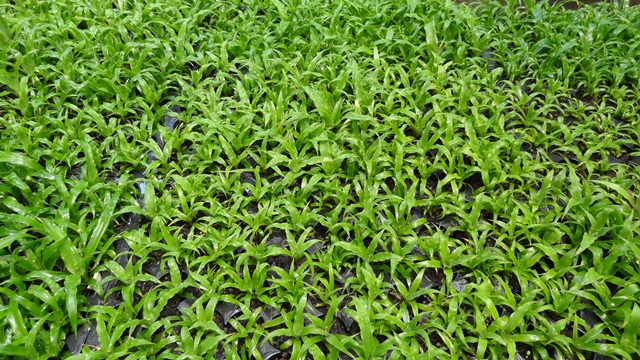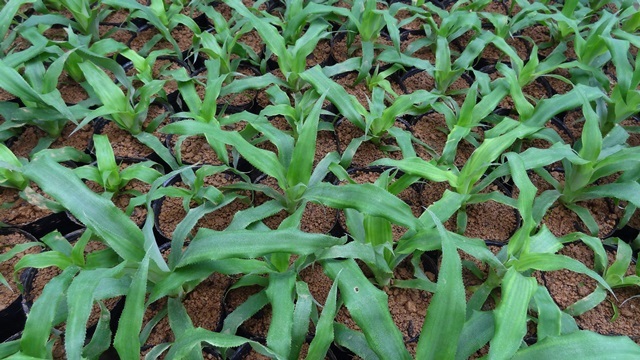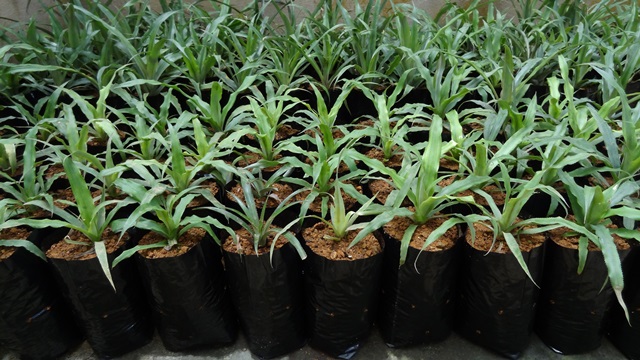KOSRAE, FSM. Dr. Virendra M. Verma, Researcher and Extension Specialist, Kosrae Agricultural Experiment Station
Pineapple Micropropagation and Commercial Cultivation to Enhance Productivity in Micronesia, is a multi-state research project approved by the United States Department of Agriculture, National Institute of Food and Agriculture (USDA-NIFA) for the Micronesian region. The project director of this project, Dr. Virendra M. Verma, shared that this project focuses on enhancing pineapple production in the Federated States of Micronesia (FSM) and the Republic of the Marshall Islands (RMI) because non-availability of disease-free and elite seedlings, shortage of trained agricultural professionals, and limited acquaintance of farmers with commercial cultivation techniques have significantly restricted pineapple production in the Micronesian region. The ultimate aim of this project is to create opportunities of income generation for local farmers through providing a means of sustainable commercial pineapple cultivation, and thereby, improve food self-sufficiency, and nutritional security in the Micronesian region.
This project is of great significance as it is specifically designed to optimize micropropagation protocol and nursery management systems to produce elite and disease-free pineapple seedlings in bulk quantities in the Micronesian region. The project utilized biotechnological techniques for micropropagation and greenhouse acclimatization of tissue-cultured plants. The project activities also include educating local farmers in sustainable agriculture practices, and providing appropriate recommendations and training for commercial pineapple production.
The pineapple (Ananas comosus L. Merrill), a tropical plant with edible multiple fruit consisting of coalesced berries, is the most economically significant plant in the Bromeliaceae family. The project involved undertaking a research study to develop an economically feasible, efficient, rapid and reproducible multiplication protocol for two local commercially important pineapple cultivars (Ananas comosus cv. Kosraean and Ananas comosus cv. Hawaiian). A highly efficient in vitro multiplication method for both cultivars was developed by using apical and lateral meristems. Murashige and Skoog, 1962 medium (MS) was used throughout the study. The cultures were initiated on MS medium augmented with various combinations and concentrations of 6-benzylaminopurine (BAP) and 1-naphthaleneacetic acid (NAA). The medium augmented with 4.5µM BAP and 2µM NAA proved best for culture establishment. For further growth and subsequent multiplication, established cultures were first transferred on MS medium augmented with 9µM BAP and 3.5µM NAA, and later on the MS medium without any growth regulators. The number of multiple shoots produced from each explant after two subcultures varied from 18 to 35. A 16-h photoperiod with a temperature of 25oC day and night, light intensity of 80µmol m-2 s-1, and 60% relative humidity were maintained for multiplication. Many micropropagated shoots formed roots while they were still on the multiplication medium. However, maximum rooting was observed on MS medium augmented with 0.5µM NAA and 0.5µM BAP. Rooted plants were transferred to soil: compost (10:1, v/v) mixture in pots and acclimatized with 93% survival rate. Hundreds of fully acclimatized, tissue-culture produced pineapple plants are ready to be planted in the field.
Successful implementation of this project has resulted in the development of a high efficiency micropropagation method for mass production of elite, diseases-free seedlings, and acclimatization of hundreds of tissue-culture raised plants of selected pineapple varieties through appropriate nursery management systems. Preparation has been started for designing, implementing and conducting research trials for commercial pineapple cultivation at multiple sites as well as for collecting data for analysis, and the development and publication of a commercial pineapple cultivation guide to specifically suit the needs of local farmers. Recommendations will be provided for sustainable pineapple production through training workshops, hands-on trainings, farm visits, and field days. Three pilot sites in the Micronesian region, specifically in the Federated States of Micronesia (FSM) and Republic of Marshall Islands (RMI) will be developed as demonstration sites to carry out research, extension, and education activities of the project to encourage and promote sustainable commercial pineapple production among local farmers in the region.


